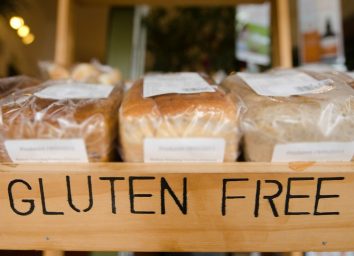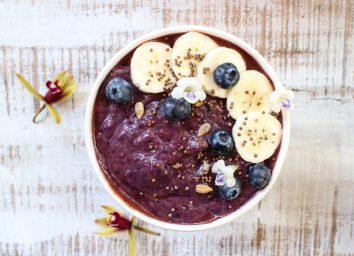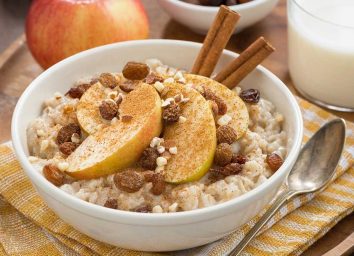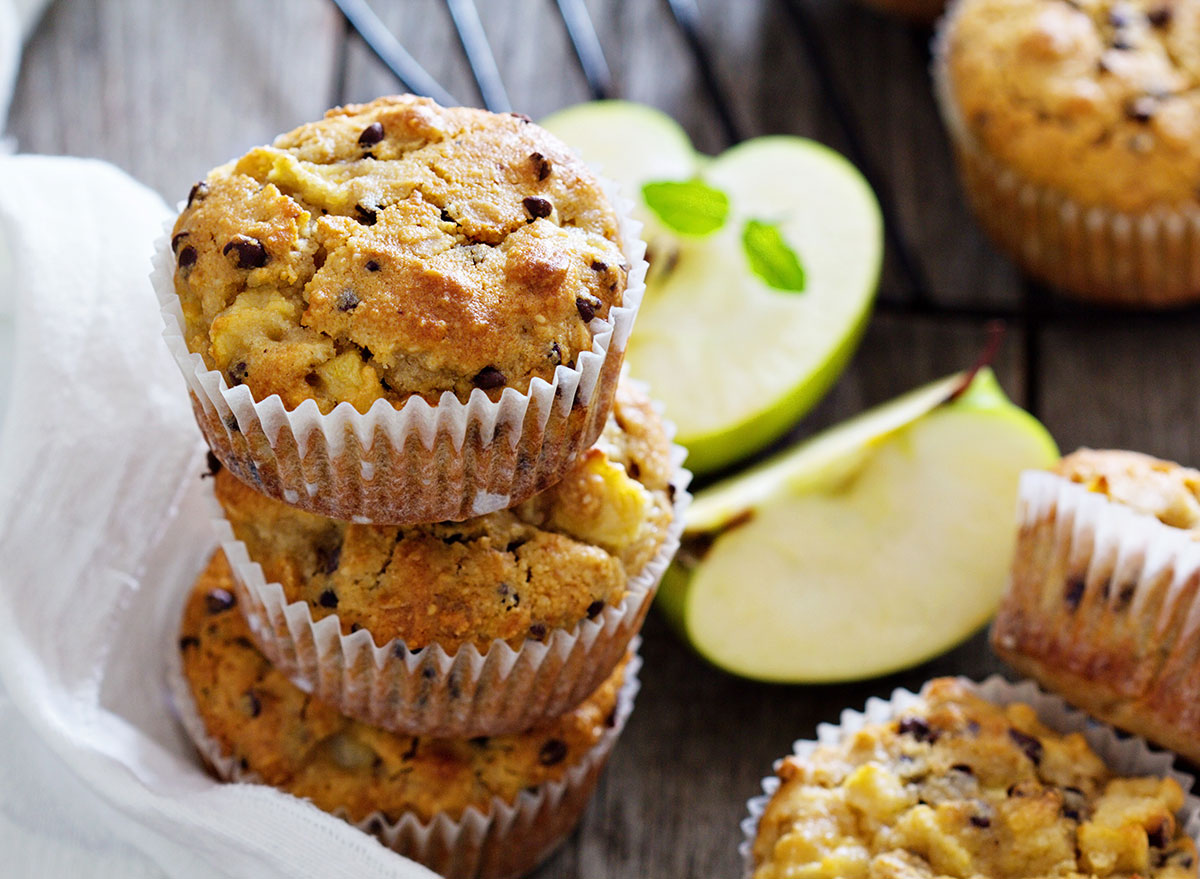
As much as you may try to make good choices when you’re food shopping, the reality is that sometimes you get duped. Blame it on misleading marketing claims, conflicting research, and confusing ingredients lists—but supermarket shelves are stocked with foods that despite their health halo, have tons of sugar, sodium, saturated fat, and other additives that don’t exactly benefit your body. Which is why the shelves are packed with “healthy” foods that dietitians actually hate.
In fact, a 2017 study, which examined millions of grocery store purchases in the United States, found that vague, unreliable claims about the amount of sugar, salt, and fat were common on many products. For example, many fruit juices that are marketed as being low in sugar actually have more of the sweet stuff than comparable products with no such claims. And some breakfast cereals that are labeled as being low in calories had a higher calorie content than other products without these claims.
The lesson here? Don’t judge a food by its label. Just because something says “whole-grain” or “all-natural” doesn’t necessarily mean it’s good for you.
We hate to be the bearer of bad news, but according to dietitians, the following foods may not be quite as “healthy” as you once thought. Here are a few examples of foods dietitians hate, and for more healthy eating tips, be sure to check out our list of 21 Best Healthy Cooking Hacks of All Time.
Energy bars
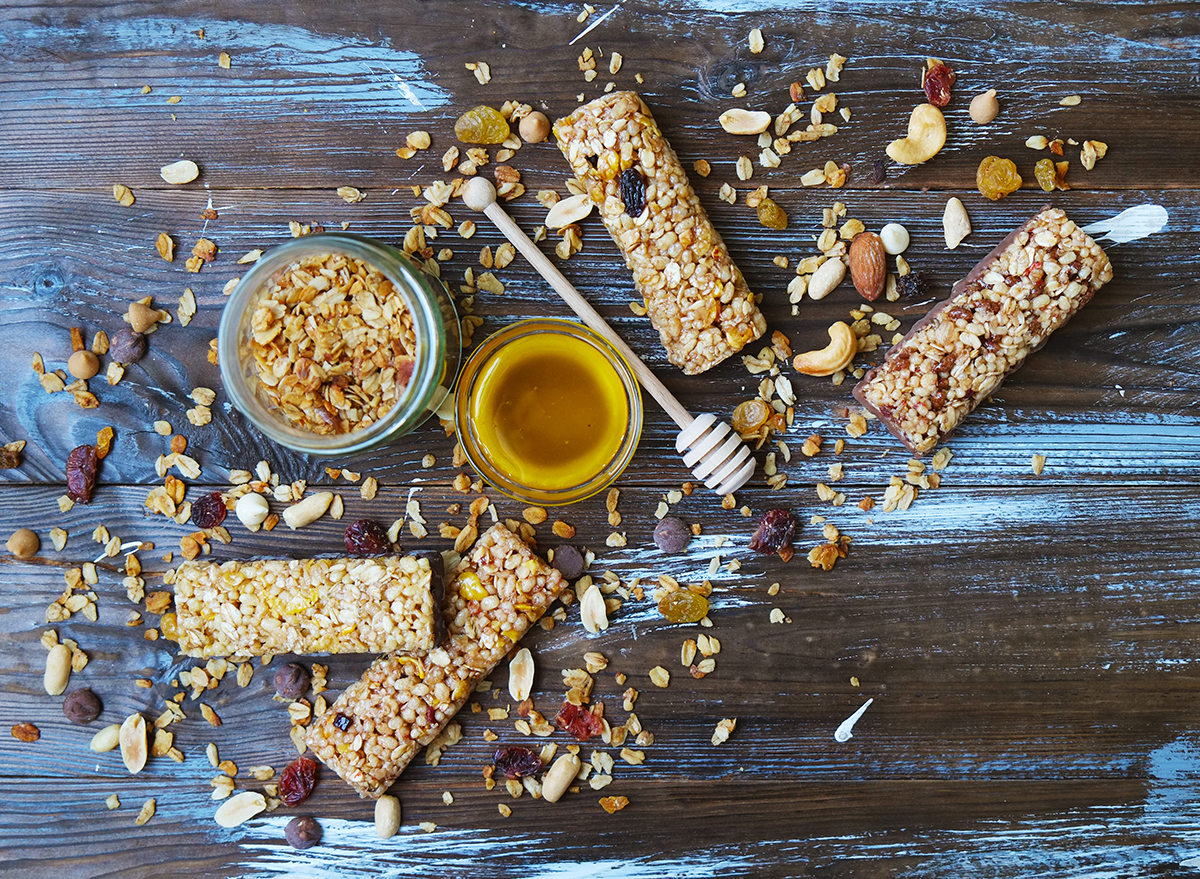
Protein bars seem like a healthy choice when you need some on-the-go sustenance to hold you over between meals. The thing is, though, many of them are loaded with sugar and calories. In fact, Andres Ayesta, a registered dietitian and founder of Vive Nutrition, says most of them contain as many calories as a candy bar.
“Another word for energy is calories but if we called it a ‘calorie bar’ no one would buy them,” says Gina Keatley, a certified dietitian and nutritionist at Keatley Medical Nutrition Therapy in New York City. “These bars are designed to be used when you are in need of a lot of quick energy in a tiny package—like when you’re rock climbing. But chances are you’re not rock climbing.”
Ayesta acknowledges that some of them can be a convenient source of protein, but it’s worth taking a look at the label to see just how much sugar they contain. Keep in mind that there’s a difference between bars that contain natural sugar from fruit (like dates, for example) and added sugar just to enhance the flavor.
If you still like stocking up on energy bars, here are 15 Best Healthy & Low-Sugar Protein Bars in 2020, According to Dietitians.
Store-bought smoothies and juices
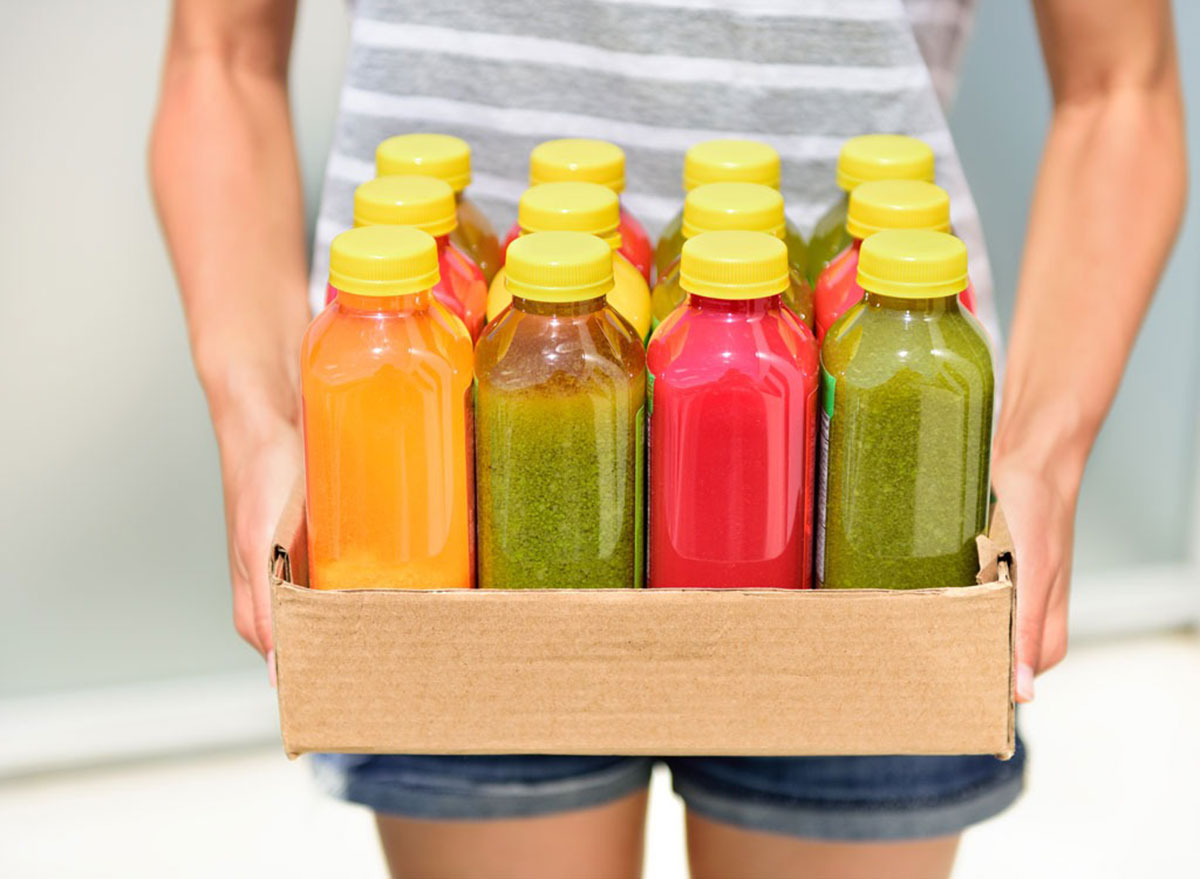
Many store-bought smoothies and juices seem healthy because they hype the dozens of fruits or veggies they contain in one serving. However, according to registered dietitian Shena Jaramillo, they’re missing one of the most important benefits that the produce has to offer: fiber.
“Cold-pressed juices are great sources of nutrients from fruits and vegetables but you are removing a lot of others—like fiber, which increases the fullness or satiety effect,” explains Ayesta. “And you are also concentrating the amount of sugar you are getting. These juices are typically absorbed quickly so they make you hungrier faster.”
For this reason, it’s better to just eat the fruit or vegetable whole. When you are craving juice, Keatley advises simply keeping your portion sizes in check. Here are What the Perfect Food Portion Sizes Actually Look Like.
“The serving size of juice should be 4 ounces,” she says. “A serving closer to 32 ounces can raise blood sugar drastically, putting a significant load on your liver.”
Granola
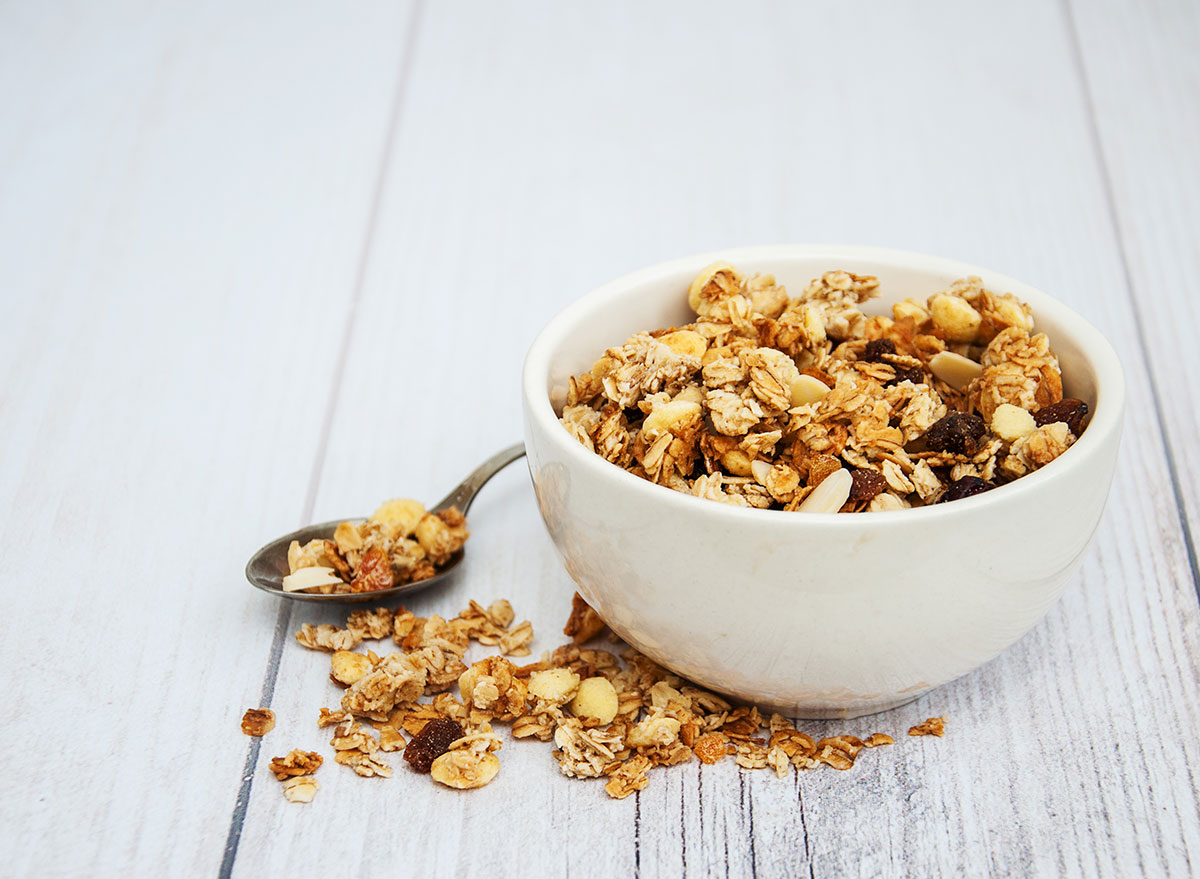
Granola is made from oats—so it has to be healthy, right? Unfortunately, many store-bought granolas are chock-full of added sugar. And depending on how much oil it’s made with, it can also be high in fat as well.
“From a 1-ounce serving you are not only getting a high caloric load but a false feeling of wellness that can skew your choices for the remainder of the day,” explains Keatley. “Moreover, granola tends to have a lot of omega-6 fatty acids which can raise your blood pressure and increase your risk of heart attack and stroke.”
That’s not to say you can’t ever enjoy a little granola, but treat it as a topping rather than the main dish—for instance, a sprinkling over a bowl of Greek yogurt can go a long way. Ultimately, you’re better off making your own granola at home, as you can control the amount of sugar that’s added and flavor it with calorie-free spices (like cinnamon) instead. Try this Homemade Cranberry-Orange Granola Recipe at home.
Nut milks

Almond milk, walnut milk, cashew milk, and hemp milk are just a few of the trendy non-dairy alternatives that have become popular in recent years—but experts say they aren’t necessarily healthier than the real thing. Of course, if you’re vegan or lactose-intolerant, there’s nothing wrong with substituting these. However, Keatley notes that low-fat dairy provides many nutrients that nut milk often doesn’t—such as calcium, phosphorus, vitamin A, vitamin D (in fortified products), riboflavin, vitamin B12, protein, potassium, zinc, choline, magnesium, and selenium.
“Nut milks are lower in nutritional value and also have comparable environmental effects,” she says.
Before buying any nut milk, it’s always a good idea to check how much added sugar is in it, too.
Coconut oil

Coconut oil has become increasingly popular—particularly with the rise of the keto and paleo diet—but you may want to think twice before cooking with it. While it’s marketed as a heart-healthy option, experts say it’s got some serious drawbacks, too.
A 2016 survey by The New York Times found that while 72% of Americans rated coconut oil as “healthy,” only 37% of nutrition experts agreed. Why the discrepancy? Well, for one, coconut oil is 80 to 90% saturated fat, which can raise your LDL “bad” cholesterol. The American Heart Association recommends limiting your daily saturated fat intake to a maximum of 13 grams, and one tablespoon of coconut oil has about 11 grams—which is way more than most common culinary oils, like canola oil, flaxseed oil, and extra-virgin olive oil.
“There are nutritional benefits to coconut oil including reduced inflammation and increased immunity,” says Jaramillo. “However, adding coconut oil to everything will just increase overall calories and fat intake potentially leading to weight gain and other chronic conditions.”
If you want to lower your risk of heart disease, Harvard Health indicates that coconut oil is not a good choice.
Protein powder
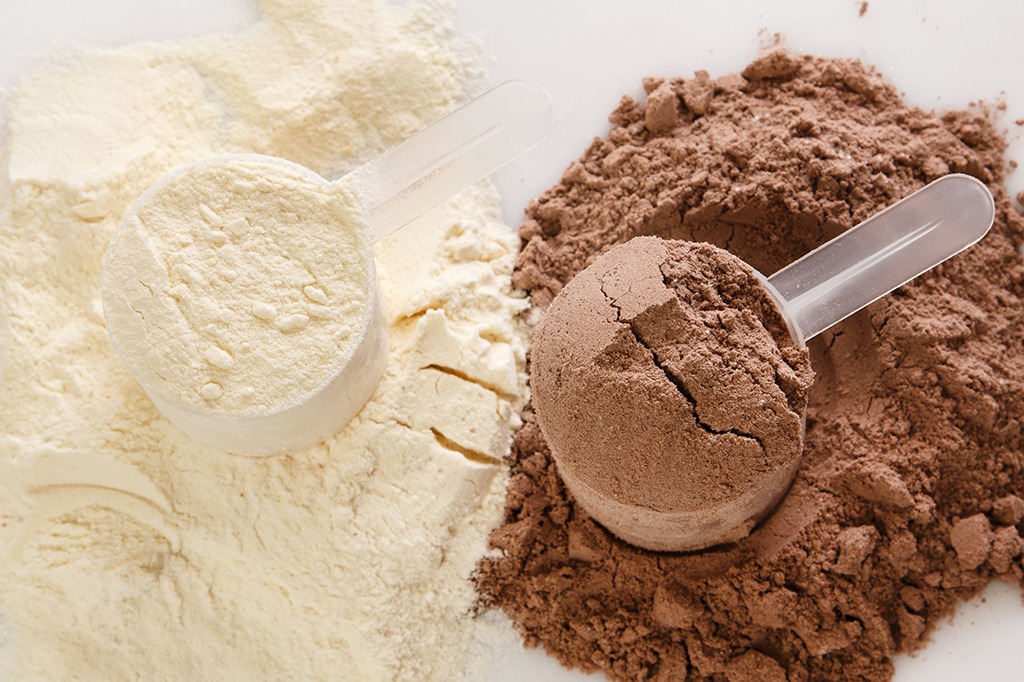
Particularly if you’re super physically active, protein powder can seem like a great addition to your diet for a quick boost of energy. It’s important to be aware, however, that some protein powders have as much as 20 or more grams of sugar per scoop. Not only that, but you may be unnecessarily loading up on protein that your body doesn’t need. Eating too much protein can lead to weight gain and kidney damage, among other negative effects.
“Protein powders are excellent if one is trying to increase calories for sports or increasing lean body mass,” explains Jaramillo. “However, this is not the case for all of us. Many Americans already have an excess of protein in our diets—and adding protein powder when it isn’t warranted will simply add calories and could lead to weight gain.”
Not only that, but a report by the Clean Label Project, which analyzed 134 different protein powders, found that many products contain heavy metals, BPA, pesticides, and other contaminants that have links to cancer and other serious health conditions.
As a general rule, it’s better to get your protein from whole foods (like lean meats and seafood, low-fat dairy, legumes, nuts and seeds, and eggs). But if you really need a convenient way to supplement your diet with additional protein, be sure to look for chemical-free powders that are low in added sugar and don’t contain artificial sweeteners.
Here’s The Surprising Truth About Protein Powders You Need To Know.
Gluten-free treats
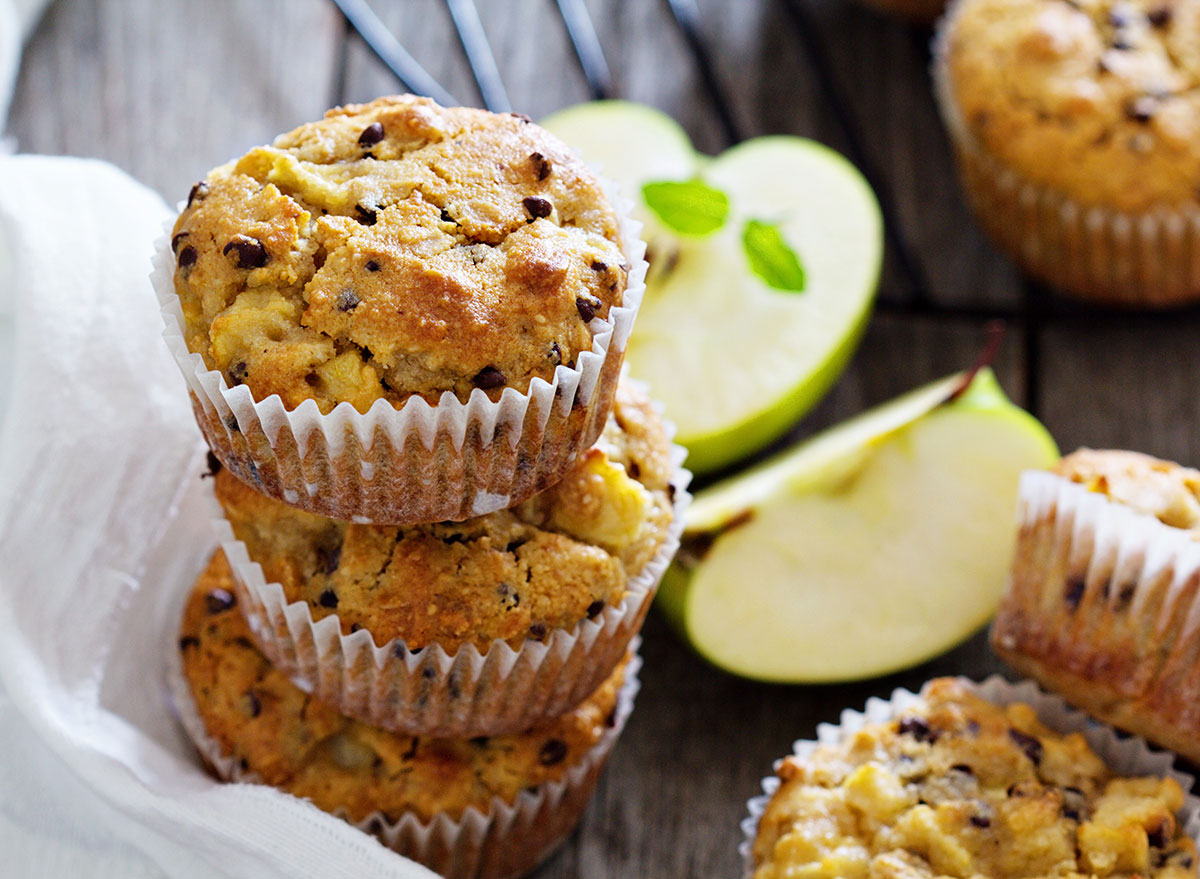
Newsflash: just because a cookie is gluten-free doesn’t mean it’s healthier.
“It still contains calories,” says Ayesta. “And since sugar is free of gluten, these baked products aren’t necessarily sugar-free, either.”
In fact, some gluten-free desserts actually have more sugar, fat, and calories—if not a comparable amount—than their conventional counterparts. That’s not to say you can’t enjoy one of these treats now and then, but if you’re not on a gluten-free diet, just be aware that these baked goods aren’t necessarily better for you.
Veggie chips
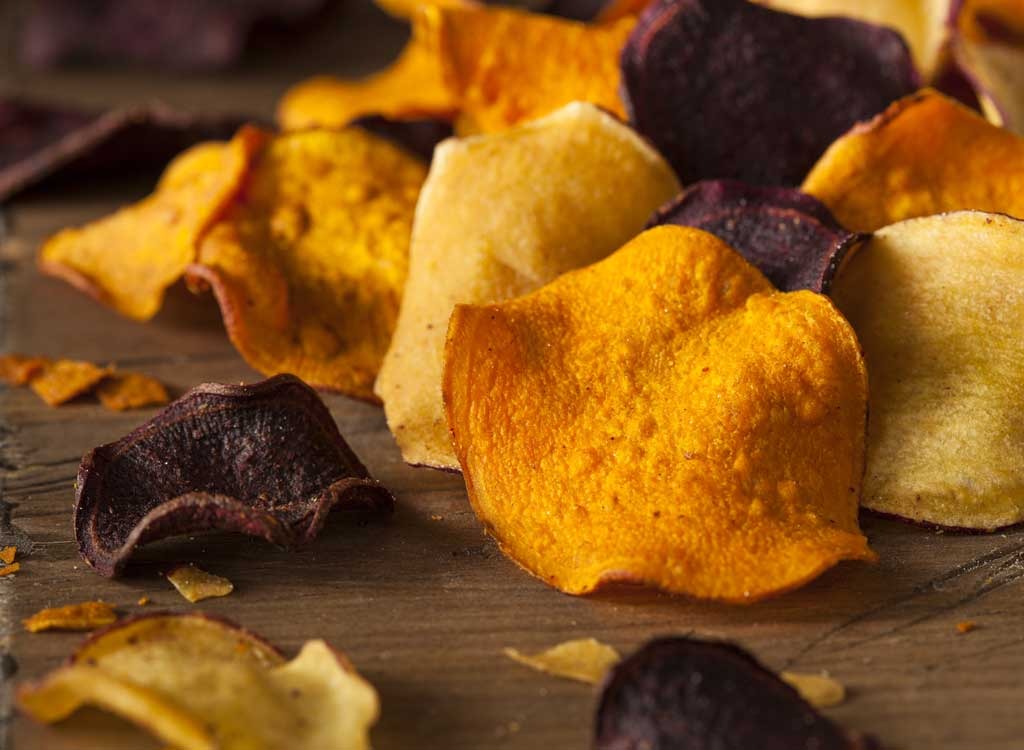
With “veggie” in the title, it’s easy to assume that these snacks are good for you. But don’t be fooled—they’re still considered processed junk food. The same goes for veggie pasta (like spinach fettuccine), according to Ayesta.
“The reality is that a lot of those products use vegetable powders to add color to these foods but the nutritional value of its non-veggie counterparts is pretty much the same,” he explains.
Basically, you’re better off snacking on crudités with dip or topping your pasta with vegetables, like what we do in these 35+ Healthy Pasta Recipes.
Meat alternatives
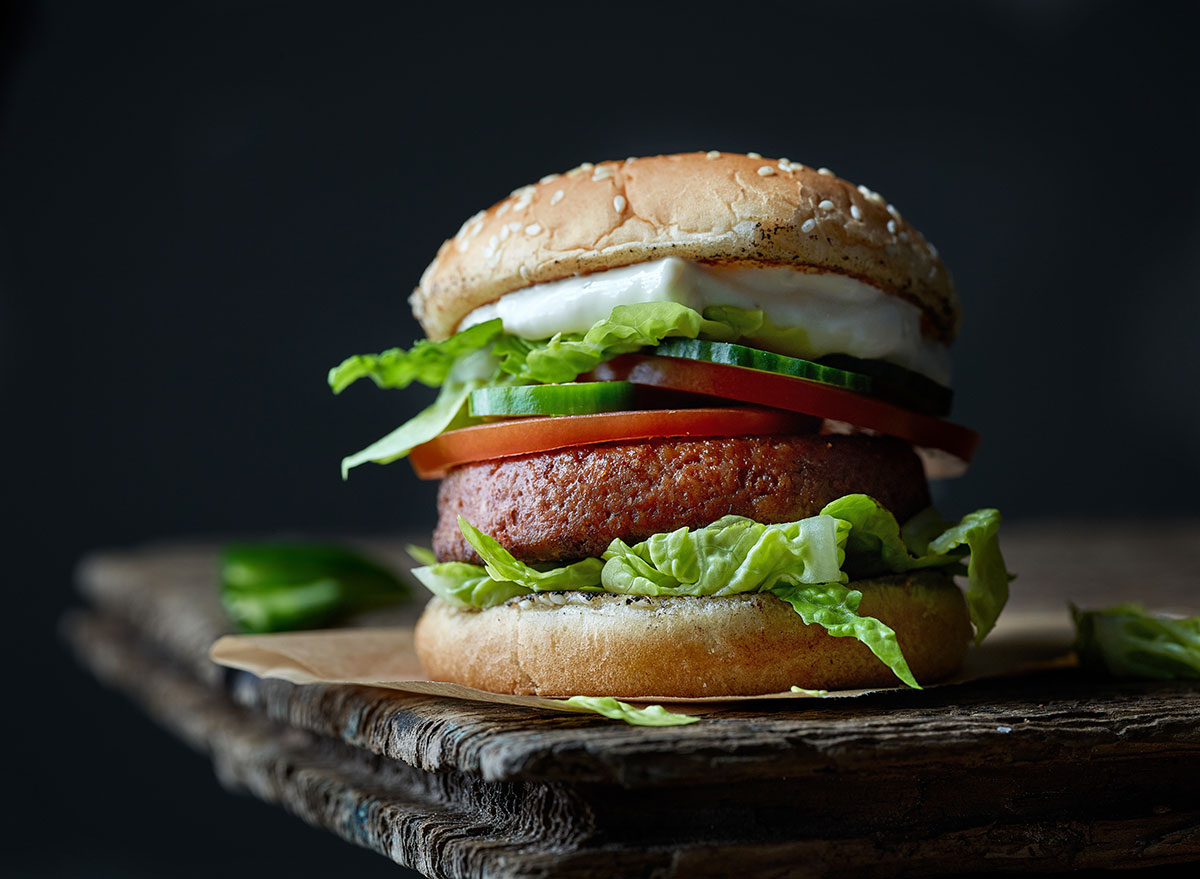
There’s no denying that meat alternatives are all the rage right now—while strolling through your local grocery store, you’ll see everything from soy-based burgers to fake “chicken” nuggets and vegan sausages. However, while cutting down on your meat consumption overall can be good for your health (and the planet), it’s important to be aware that these products aren’t always as healthy as they may seem.
These alternatives often don’t fare better in the sodium or fat department than their meat counterparts—some manufacturers add lots of salt to make them taste good, and coconut oil is also a common ingredient. Not only that, but they are typically highly processed.
“Meat alternatives typically contain a lot of additives and ingredients to preserve their freshness,” explains Ayesta. “In addition, many of these fake meats are calorie-dense.”
For example, the Impossible Burger contains 14 grams of fat (8 grams of which is saturated) and the Beyond Burger contains a whopping 18 grams of fat.
The American Heart Association reports that many of these products contain questionable additives, and recommends considering beans and legumes for a healthier vegetarian protein source. Note that the best meat alternatives will have shorter ingredients lists, with mostly recognizable whole foods and limited hard-to-pronounce additives. Or try one of these 13 Great Protein Alternatives If You Can’t Find Meat at the Grocery Store.
